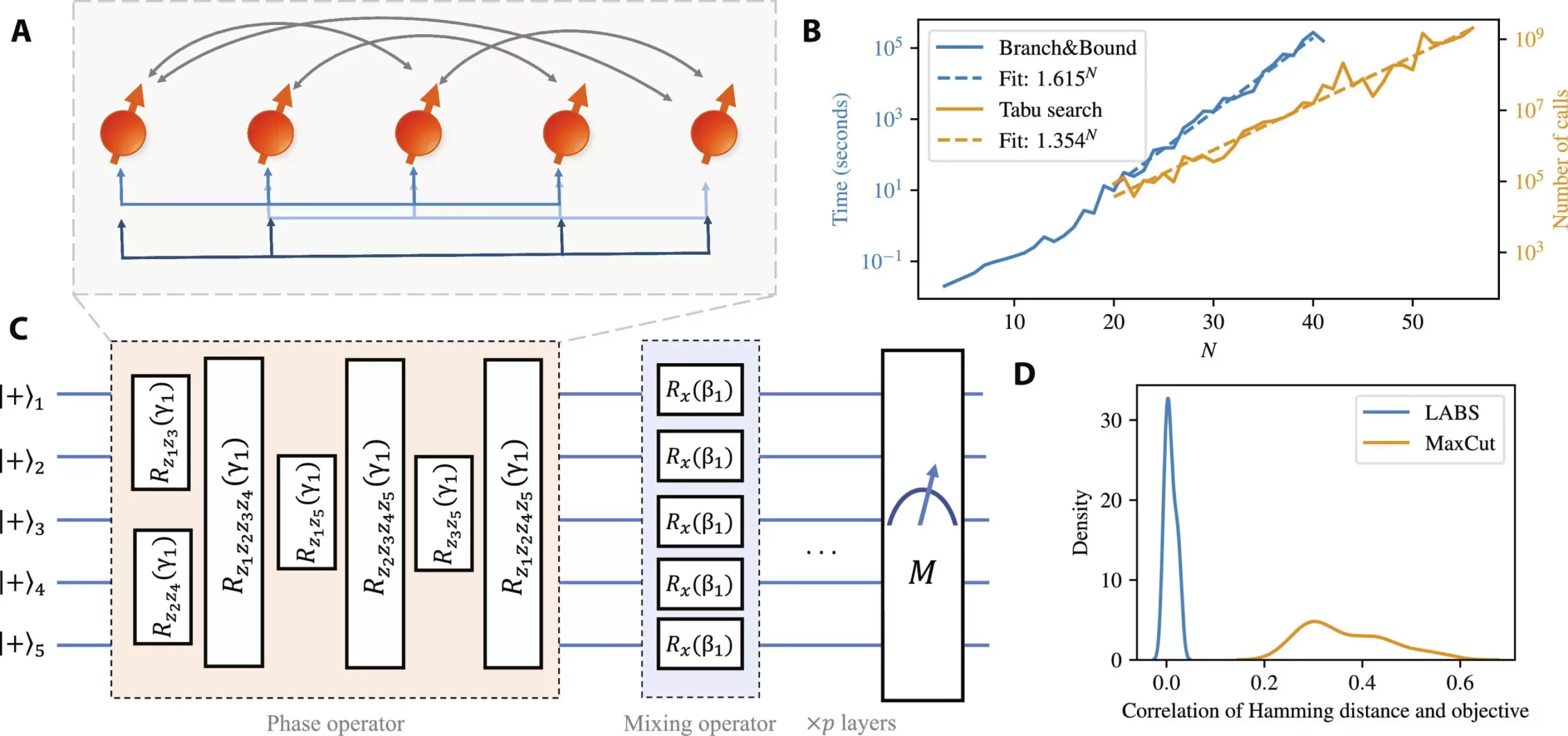In a groundbreaking collaboration between JPMorgan Chase, the U.S. Department of Energy’s Argonne National Laboratory, and Quantinuum, a new paper published in Science Advances unveils clear evidence of a quantum algorithmic speedup for the quantum approximate optimization algorithm (QAOA). This significant milestone marks a crucial step towards achieving quantum advantage, with far-reaching implications for various industries.
The research team delved into the potential of QAOA to outperform classical methods at solving complex problems. By applying the algorithm to the Low Autocorrelation Binary Sequences problem, which has broad applications in fields like physical systems and cryptography, the researchers uncovered compelling evidence of quantum speedup. As the algorithm tackled increasingly larger problems, its efficiency surpassed that of classical solvers, hinting at the transformative power of quantum computing.
To further investigate the quantum algorithm’s capabilities in an ideal noiseless environment, JPMorgan Chase and Argonne leveraged a specially developed simulator on the DOE petascale supercomputer Polaris. This sophisticated simulation allowed for an in-depth analysis of the algorithm’s performance at scale, showcasing the potential synergy between high-performance computing and quantum information science.
Realizing Quantum Speedup
In a move towards practical implementation of the algorithm’s speedup, the researchers successfully executed a small-scale demonstration on Quantinuum’s System Model H1 and H2 trapped-ion quantum computers. Through algorithm-specific error detection mechanisms, the team effectively mitigated errors and enhanced the algorithmic performance by up to 65%. This crucial step paves the way for future applications of quantum computing in real-world scenarios.
The collaborative effort between JPMorgan Chase, Argonne, and Quantinuum exemplifies the power of industry-academic partnerships in driving cutting-edge research. By harnessing the unparalleled capabilities of the H-Series Quantum Computer, the research team achieved remarkable results that would not have been possible without this collaborative endeavor. The seamless integration of expertise from multiple domains underscores the importance of interdisciplinary collaboration in accelerating quantum innovation.
The recent breakthrough in quantum algorithmic speedup holds immense promise for revolutionizing various industries and unlocking new possibilities in computational problem-solving. This research not only advances our understanding of quantum computing but also underscores the tremendous potential for quantum technology to reshape the future of science and technology.


Leave a Reply